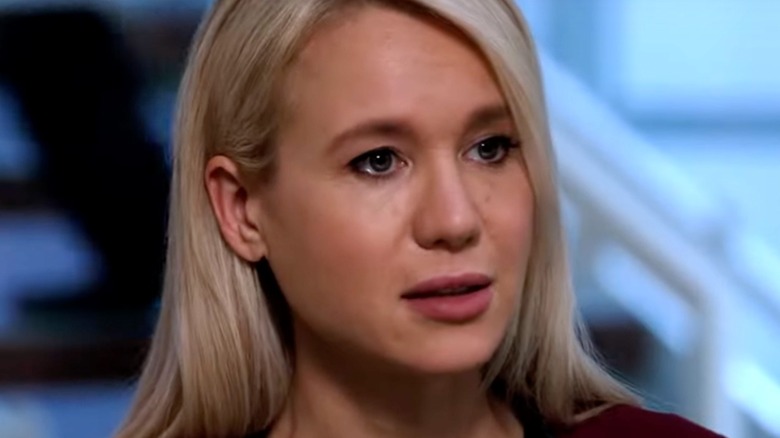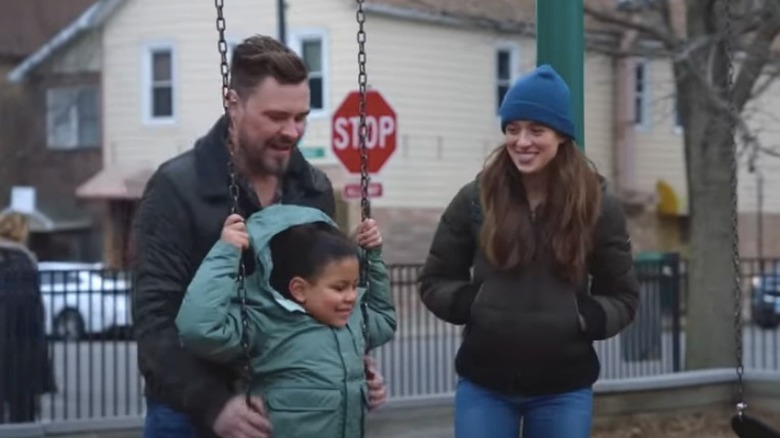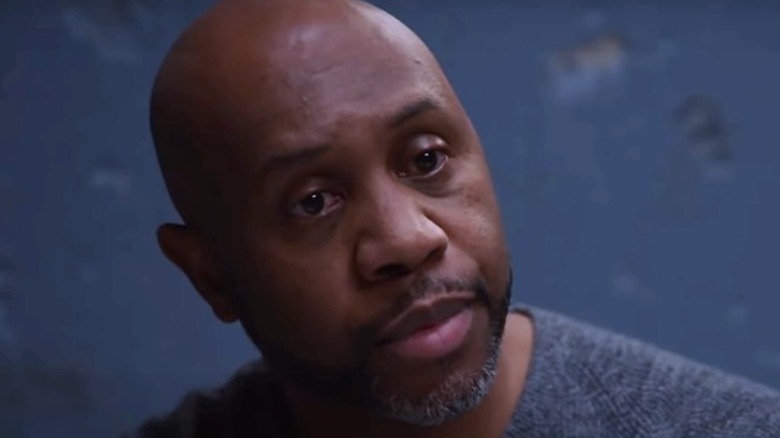Fans Can't Stand This Repetitive One Chicago Storyline
If "Hill Street Blues" creator Steven Bochco kicked-off, in the words of Dick Wolf (via The Hollywood Reporter), "a definitive shift in the reality factor in drama," it was Wolf himself who turned the newly defined, gritty police procedural into the franchise-building and ratings-busting primetime powerhouse it is today.
Two decades after Wolf's original "Law & Order" debuted on NBC, the creator and executive producer struck gold again with "Chicago Fire." Like its NBC predecessor, the series would give birth to several more shows, including "Chicago Med," the now-defunct "Chicago Justice," and the nine-seasons-and-counting "Chicago P.D." Known collectively as the Chicago One franchise, the three series consistently beat or stand strong against their given time slot competition — even when that competition is game two of the World Series (via Monsters and Critics). Clearly, the franchise is doing just fine in the ratings and viewership department. As of late, however, some fans are beginning to grow weary of an oft-used storyline that's reared its repetitive head, once again, in Season 9 of "Chicago P.D."
The franchise's detective and street cop-centered series revolves around Jason Beghe's Sergeant Hank Voight, and his dedicated team of occasionally coupled-up agents in Chicago's 21st District Intelligence Unit. One of those on-again, off-again couples, Kim Burgess (Marina Squerciati) and Adam Ruzek (Patrick Flueger) face a challenge in the show's most recent season that, according to some, they've seen two too many times before.
Fans are bored with the custody battles
In Season 8, Kim adopts a child named Makayla (Ramona Edith Williams) after the latter's biological father is sentenced to life in prison. Though Adam and Kim are no longer together, both agents serve as Makayla's guardians (this, after Kim suffers the miscarriage of Adam's baby in Season 7). In Season 9, however, the girl's long-lost uncle (Derek Webster's Theo Morris) magically appears and opts to file for custody. It all makes for some potentially heartbreaking drama, but here's the thing: this is the third time the franchise has utilized the "estranged relative custody battle" bit, and the fourth time it's been used in the greater Dick Wolf universe (see: Brooke Shield's storyline on "Law & Order: Special Victims Unit," per E! News).
Unsurprisingly, fans are over it. "I am sick and tired, SICK. AND. TIRED. of this stupid, repetitive plot device" wrote user Coachman76 on the "Chicago P.D." subreddit, referencing similar arcs in both "Chicago Fire" and "Chicago Med." The fan's frustration was echoed by many, with one user referring to Theo as another "stupid, rehashed magical relative," and another saying that "these writers are...just cribbing storylines from other shows."
While there are plenty of criticisms to be made against the writers of police procedurals — including, as Variety notes, the fact that they're overwhelmingly white — the notion that the storyline appears so much as a result of laziness may not be one of them. Moreover, this latest iteration attempts, at least, to take it in a far more pertinent direction.
To be fair...
While the regurgitation of a now thrice-used "plot twist" across a single franchise seems lazy, it makes some sense. Not only is it difficult to show characters in these professions raise (so-called) traditional families over several seasons (hence, handing them other families' pre-packaged children), it also doesn't make for particularly compelling drama. In the real world, the assessment that kids are, in and of themselves, fairly boring, might be considered harsh. In the world of the procedural drama, it's basically a given. Enter: a kidnapping, custody hearing, or both.
While this may not excuse such overt redundancy, "Chicago P.D." (at least) adds a layer of complexity to the arc. The fact that Kim is a white cop raising a Black child in the city of Chicago is integral to the storyline. At one point, she's referred to as a "white savior." At another, she struggles to properly braid her daughter's hair.
Notably, "Chicago P.D." has managed to acknowledge both systemic racism and racial tensions and inequities in general. Though Jason Beghe said in 2020 that Season 8 would tackle said issues in the wake of the George Floyd protests and evolving attitudes and awareness (via Wolf Entertainment), the series actually began touching on these subjects in its Season 5 premiere (via TV Fanatic). Thus, while the nuts and bolts of Makayla's story may feel familiar, it's clear the writers were intent on using it to explore a different theme entirely (one that would allow Wolf to kick-off his own "definitive shift in the reality factor in [cop dramas]").


